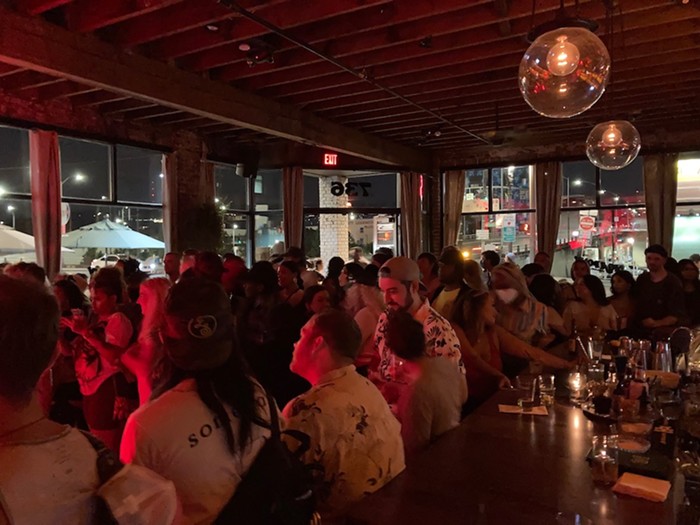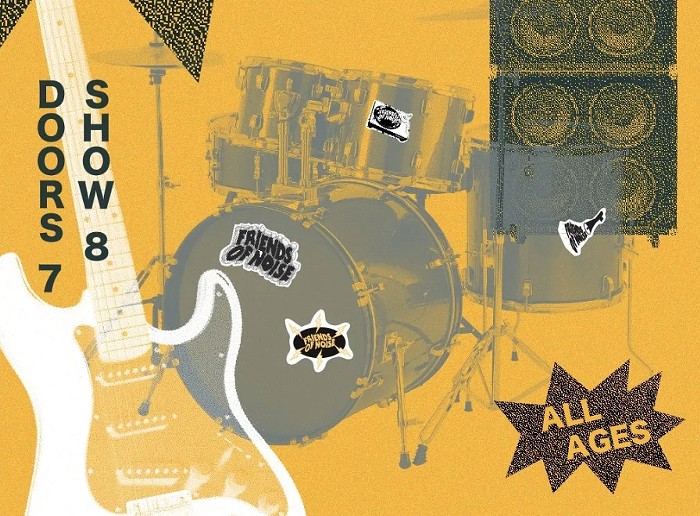WHEN THEY FIRST blew up in the early '00s, Ladytron seemed the perfect band for the era—a mixture of New York worship, coke-buzzed late nights, disimpassioned dual female vocals, and too-cool-for-fashion-school beats and synths. They were part of, and helped usher in, the era of electroclash, which at its best reminded everyone of how much fun the Reagan '80s were, but at its worst proved that any hack with a vintage drum machine could put out an album that would be gobbled up by dance kids fucked out of their minds on stimulants.
Of course, the buzz couldn't last forever and, surprise surprise, died about a year into the electro-revival. And yet Ladytron transcended the genre in nearly every way, never falling into the clichés that immediately dated most of their contemporaries. Their second to last album, Light & Magic, dropped nearly four years ago—really, just as electro's brief moment in the sun was beginning to justifiably fade.
And then, well, not a lot happened. They put out a mix CD in 2003—Softcore Jukebox—that showed off their influences (the Fall, Wire, My Bloody Valentine) and, I guess, was meant to introduce their fans to slightly more obscure music. It was a gesture that was met by many with, "Oh, okay. Thanks. But are you guys, like, still a band?"
Luckily, at the end of last year, Ladytron broke out with their first album since 2002—the more mature, more rocking Witching Hour, which showed some serious departures from the past.
"We were always associated with a label that we were never comfortable with," the band's multi-instrumentalist Daniel Hunt said in an interview from a New York hotel—never mentioning the "e" word.
As for the changes in sound on Witching Hour—more prominent guitars, more "sophistication"—Hunt says they're the product of the simple fact that Ladytron has spent years actually playing as band since Light & Magic was released.
"And we've always had guitars on our albums, but they're more prominent on these songs," Hunt explained. "But many of the guitar sounds... are actually synthesizers."
Authenticity of instruments aside, the only real question that needs to be answered is this: Is the album any good? So, I'll tell you. Yes. It's pretty all right. In fact, the opening track, "High Rise," is one of the best songs Ladytron has ever put out. The mixture of driving (real) drums, distorted keyboards, haunting layered vocals, and, yes, guitars, is classic Ladytron—everything that made "Blue Jeans" and "Seventeen" smash hits in the indie world.
Following that song is the disco-flavored "Destroy Everything You Touch" and the somewhat embarrassing/catchy-as-shit "International Dateline." But it really picks up about midway through the album with "Sugar," the most obvious ode to cocaine since "Cocaine," which apparently contains the shredding keyboards-as-rock-guitars that Hunt was talking about.
Strangely enough, this will be Ladytron's first ever Portland show—so we'll all finally get to see what New York and San Francisco and Ibiza all saw years ago. Is Portland behind the times? That can only work in Ladytron's favor.


















